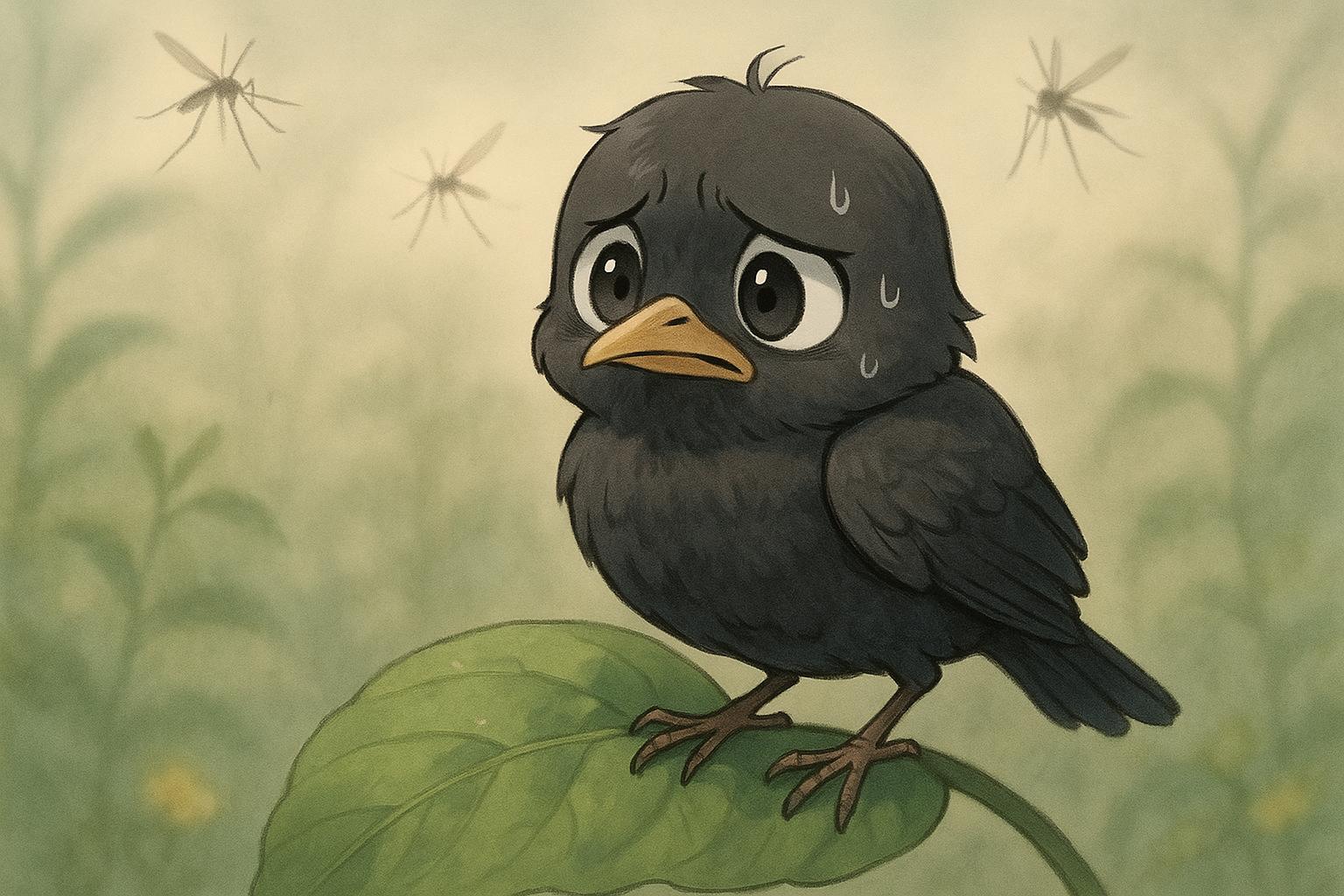A mosquito-borne disease known as the Usutu virus has recently made headlines in the UK, particularly concerning its impact on local blackbird populations. Since its identification in 2020, the virus has spread rapidly throughout southern England, generating significant concern among scientists and conservationists alike. This worrying trend coincides with observed declines in blackbird numbers, prompting urgent calls for monitoring and action.
It is estimated that blackbird populations in Greater London have plummeted by approximately 39% over the past four years, with the Usutu virus playing a pivotal role in this decline. The virus, which is transmitted by mosquitoes, poses not only a biological threat to these beloved songbirds but also signals broader ecological challenges associated with climate change. Warmer temperatures are creating more favourable conditions for mosquitoes, which could further enable the virus to spread rapidly across the UK.
In response to the escalating situation, the British Trust for Ornithology (BTO) has launched the "Blackbirds in Gardens" project. This initiative invites individuals with gardens to participate in a survey aimed at collecting vital data on blackbird populations and their interactions with the environment. Dr Arran Folly from the Animal and Plant Health Agency (APHA) emphasised the importance of this project, stating, "We've seen that the virus has spread further than we thought it might do, and it's persisted." The involvement of local residents will help researchers gain insights into how the Usutu virus is affecting blackbird habits and survival rates in urban settings.
The urgency of this project is also highlighted by government evaluations, which indicate a low to moderate risk of human transmission of the virus. While the Usutu virus is unlikely to lead to widespread human infection, it has severe implications for bird populations. According to a study published in the journal Emerging Infectious Diseases, similar viruses have previously been linked to significant population declines among birds in Europe, including a 15.7% drop in common blackbird numbers in affected areas.
As the Usutu virus continues to spread, the onus is not only on scientists and policymakers but also on the public. The BTO encourages garden enthusiasts to participate in the survey and help raise awareness. Adjustments to garden ecosystems, such as removing stagnant water sources that serve as mosquito breeding grounds, might also mitigate the risk of further outbreaks.
Conservation efforts, both local and nationwide, must now pivot to include thorough monitoring and proactive measures against the threat posed by the Usutu virus. As scientists investigate the interplay between climate change and disease emergence among wildlife, the call for community engagement has never been more vital. Understanding the full impact of this viral threat will require a multidisciplinary approach, with the goal of protecting both blackbirds and the biodiversity they represent within our gardens and ecosystems.
The implications of the Usutu virus extend beyond just the plight of blackbirds; they serve as a cautionary tale about the fragility of wildlife in the face of rapid environmental change. As we witness the reverberations of climate change manifest across species and habitats, the welfare of our natural world hangs in a delicate balance, highlighting the urgent need for informed action and conservation efforts.
Reference Map:
- Paragraph 1: [1], [3], [5]
- Paragraph 2: [3], [7]
- Paragraph 3: [1], [4], [5]
- Paragraph 4: [2], [4], [6]
- Paragraph 5: [1], [6]
- Paragraph 6: [2], [4]
- Paragraph 7: [6]
- Paragraph 8: [3], [7]
Source: Noah Wire Services
